The content of the article
Dentures are a real salvation for many people. This is the perfect solution if all or all of your teeth are lost. Dentures can be made of different materials, the most common is plastic. Plastic prostheses are quite convenient, quick to manufacture, you can choose a shade to match the color of your teeth. In addition, plastic is much cheaper than cermet analogues. Among the shortcomings - the plastic prosthesis is short-lived (it will have to be changed every year) and quite fragile (chewing teeth are erased in the first place).
A good quality prosthesis is the ability to chew food on your own, as well as the important appearance of a person. But for everything to be so “beautiful”, prostheses need to be looked after. Sooner or later, the surface of the material, just like natural teeth, may darken. This is due to plaque, which is formed from food debris, organic particles, bacteria and germs. To avoid this, prostheses need to be given due attention.
How to care for dentures
Here are the basic rules to follow if you wear dentures.
- After each meal, the prosthesis must be removed and rinsed under running water. Rinse thoroughly so that no food remains are left in the slots. Be careful at the same time - dropping the prosthesis and impacting the hard surface of the ceramic sink or bath can damage the fragile prosthesis.
- In the morning and in the evening, the prosthesis needs to be cleaned exactly as you care for your teeth. If you still have your teeth, the prosthesis needs to be removed and brushed using toothpaste. Do not use toothpaste or toothpowder with hard abrasive particles that could damage and scratch the surface of the prosthesis. If scratches form on the surface, it will begin to darken faster due to the penetration of microbes and bacteria inside. When cleaning dentures, do not forget to brush your teeth, tongue, gums and tongue. Use a soft brush for this. If there are no teeth, the prosthesis still needs to be removed for cleaning to prevent the accumulation of food and germs between the gum and the prosthesis.
- Once every two weeks you need to thoroughly clean the dentures. To do this, they are soaked in special solutions that can be bought at any pharmacy. Most often they are effervescent tablets that need to be dissolved in a glass of water, and then the prosthesis is soaked in this solution. In addition to professional products, you can use just toothpaste. For thorough cleaning, a soft brush will not work; take a brush with a stiff bristle. Soak the prosthesis in warm water first, and then brush it over.
- Remove the prosthesis at night and leave it in a container of water. You can add a little chlorophyllipt, a mouthwash or other antiseptic composition to the water.
- Once every six months, you need to take the denture for cleaning to the dentist. Every 3-5 years, the product should be changed.
If you remove prostheses for more than a couple of hours, they should be stored in water, remember this. In a dry environment, the prosthesis may crack and deform. Also, do not leave dentures in hot water. If there are metal elements on the prosthesis, do not leave it with tap water. Metal in reaction with chlorine can cause the prosthesis to darken.
Professional denture whitening products
Almost all dental care companies have a line of denture care products.Among the most popular and sought after are effervescent tablets of Lakolyut, Denta, Korega, Roks, Protefiks. These are not only effective remedies, they are also safe. When cleaning the prosthesis with a toothbrush, microcracks form on the surface, in which microbes accumulate much faster. After this, the prosthesis must be disinfected much more often. In addition, it looks more gray.
Some manufacturers, such as Korega, produce pops based on active oxygen. During the interaction, oxygen penetrates into inaccessible places on the surface of the prosthesis and actively cleans them. After such cleaning, the prosthesis becomes whiter by several tones. In addition, the tablets have an antiseptic composition, which helps to avoid problems in the oral cavity. Some products include a polymer in these cleaners. It covers the surface of the prosthesis and protects it from external influences. If your tablets are made with polymer, do not brush your dentures with a toothbrush, otherwise you will erase the protective layer.
How to whiten dentures at home
If the surface of the prosthesis has darkened, you can take the product to the dentist. However, this does not always have time and money. Here are some ways to whiten prostheses at home.
- Lemon juice. Soak the prostheses overnight in warm water with a couple tablespoons of lemon juice. This will not only allow you to clean and whiten the prosthesis, but also relieve bad breath.
- Vinegar. The cause of the dark plaque may be bacteria, which can be eliminated with the help of acetic solution. Dissolve three tablespoons of vinegar in a glass of water and leave the prosthesis in this solution for a couple of hours. You can’t keep it longer - vinegar can corrode the soft parts of the implant. In addition, vinegar cleaning should be no more than once every two weeks.
- Tooth powder, vinegar and lemon. A gray prosthesis is not a very pleasant sight, especially if you have your own teeth, and they look very contrasting. In this case, you need to use a serious whitening of lemon, vinegar and tooth powder. Mix a tablespoon of lemon juice with the same amount of vinegar. A reaction may begin - this is normal. Add tooth powder to the liquid to make slurry. Apply it to the prosthesis, spreading a thin layer. Leave for an hour and a half, and then rinse thoroughly under water. It is not recommended to brush the prosthesis so that the solid particles of the tooth powder do not scratch the surface. You can wipe and polish the prosthesis with a simple dry cloth at the end.
- Soda. If the prostheses are made of cermets, it is almost impossible to scratch them. In this case, you can use mechanical cleaning with baking soda. Dip a wet brush into the powder and thoroughly clean the prosthesis with it. Rinse it after cleaning. Such manipulations will keep the prosthesis white for a long time.
- Microwave. If the prosthesis needs to be cleaned quickly, and there is no time to wait for long reactions, you can do the following. Dip the prosthesis in a cleaning solution (vinegar, lemon, rinse aid - whatever) and place the container in the microwave for 2 minutes. Waves of a certain frequency will accelerate the cleaning process, and the prosthesis will be not only white, but also disinfected.
- Mint, oak bark, chamomile. A decoction of these herbal remedies also perfectly cleans prostheses, disinfects them and prevents the formation of halitosis.
These simple tips will help you quickly and safely clean your dentures at home if professional pills aren't at hand.
Medicine has advanced very far in the prosthesis of dental prosthetics. Modern dentures are almost not felt, they sit well and it is quite difficult to lose them. In order for the prosthesis to serve you as long as possible - you need to properly care for it.
Video: Denture Care

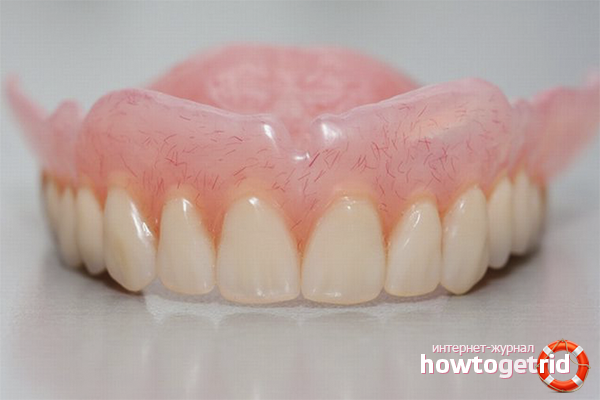
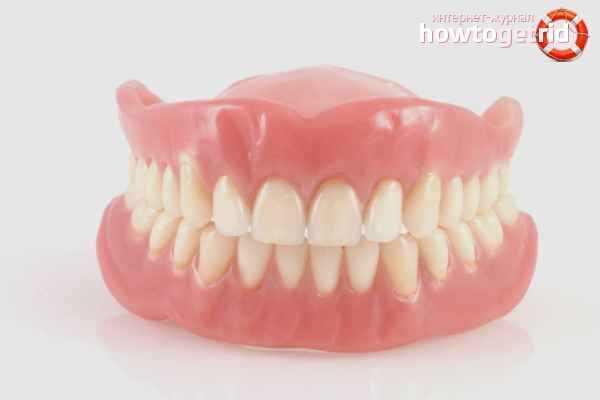
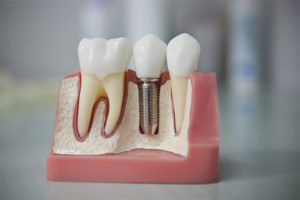
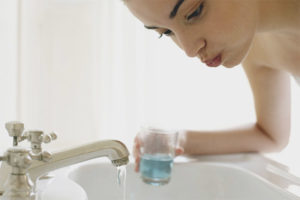

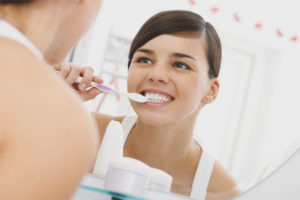
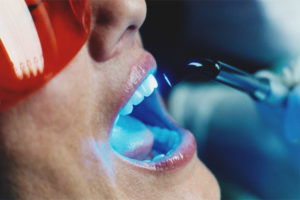
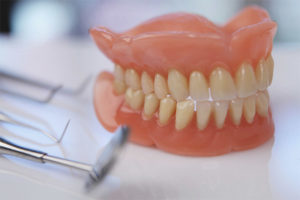

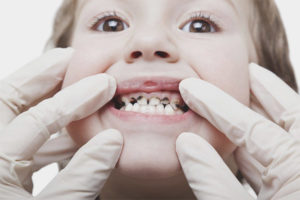
Submit